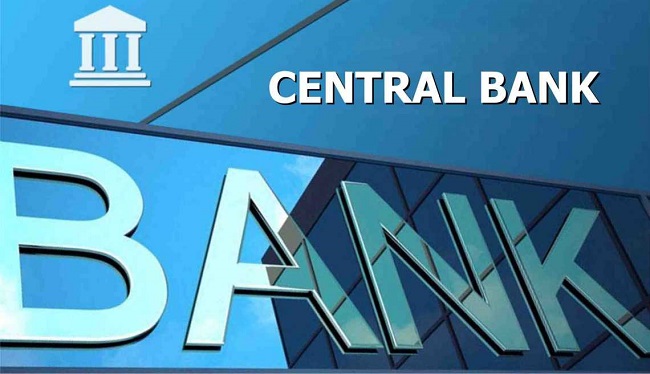The Foreign Exchange Market is the largest market and most liquid market in the world, with a valuation of over $7 trillion. This market consists of numerous currencies being bought and sold at the same time, with demand and supply being the major determinants of market prices.
Central bank activities and several other factors also influence market prices and currency valuation. Central Banks can directly influence the forex market by making changes to their monetary policies.

They use monetary policies as one of their Tools for maintaining economic stability and a functioning financial market. This article explains the roles of central banks in the foreign exchange market.
Read Also:
What is the Foreign Exchange Market?
The Forex market is a global OTC (over-the-counter) financial market that allows individuals to trade multiple currencies. The Foreign Exchange (FX) Market is decentralized, and multiple trades are carried out every second globally.
The Forex Market can be accessed by a large majority of people, and its major market participants are banks, financial institutions, governments, businesses, and individual forex traders. There are FX brokers that serve as an intermediary between traders and the FX market, Traders use Metatrader 4 to get access to their broker’s trading server.
In the FX market, currencies are traded against one another (in pairs) at a relatively equal value, and this value is determined by market price. For instance, the Canadian Dollar (CAD) can be bought with the Swiss Franc (CHF); this type of transaction is represented as CAD/CHF, with the desired currency placed first in the currency pair. The foreign exchange rate determines how much of one currency is needed to buy another.
The Influence of Central Banks in the Forex Market
The central bank of a nation is responsible for issuing and regulating the value of the currency in circulation. They have control over the money supply and interest rate, using these as tools for controlling inflation and exchange rate fluctuations. Below are some of the ways central banks can influence the forex market.

Monetary Policy
Central Banks can use monetary policies to influence the forex market. Monetary policies are determined by bank interest rates, the money supply, and capital reserves; changes in monetary policies have direct impacts on a currency’s valuation.
Low-interest rates and a high money supply increase the amount of money in circulation, which in turn can reduce the value of a nation’s currency. High-interest rates and a low money supply attract investors and increase the value of a nation’s currency.
Currency Intervention
Central Banks are responsible for stabilizing the value of their nation’s currency. In situations where market operations (demand and supply) cause currency value fluctuations, there could be central bank intervention, like Buying or selling their currency, to prompt price stability.
Quantitative Easing
Central Banks use QE (Quantitative Easing) programs in situations where there is an economic crisis. This action involves buying government bonds and other assets to pump money into the economy, which increases economic activity. Quantitative Easing can cause currency devaluation because there will be more money chasing fewer goods.
Forward Guidance
Forward Guidance is the term that central banks use to announce their monetary policy plans. News and official releases can affect the forex market as market spectators, commercial banks, and fundamental analysis traders react in anticipation.
Factors Influencing Currency Valuation



There are lots of factors that determine the value of a nation’s currency; some of these factors are internal, while others are external. Below are some common factors that affect the value of a nation’s currency.
Central Bank Policies
The Policies and regulations adopted by the central bank of a nation affect the value of its currency. The central bank’s monetary policies and interventions are the tools used to control the forex market.
Political Stability
Political Stability attracts investors, increasing the currency’s demand and value. Just like political stability can cause an appreciation, political instability could cause a depreciation of the value of a nation’s currency.
Economic Indicators
Some Popular economic indicators are unemployment rates, inflation, and GDP. These indicators give insight into the economic Health of a country; excellent economic performance strengthens the value of a nation’s currency.
Market Sentiment
Trader sentiment and market perceptions can cause fluctuations in currency prices; this is usually influenced by global developments or national news.
The Impact of Currency Valuation
Fluctuations in a currency’s value affect Businesses, individuals, and even the government of that country. These are the effects of changes in the valuation of a country’s currency.
Individuals
When there is an FX depreciation, the value of foreign currencies increases against the national currency. This will make the cost of imported goods increase, which will also increase the cost of living in that country. On the other hand, an appreciation could reduce the cost of living in a country that is reliant on imports.
Businesses
Exporters benefit from currency depreciation, as this increases their profit margins and also makes their Products more competitive. Importers benefit from currency appreciation because there will be reduced prices.
Government
Currency Valuation affects a country’s ability to compete in the international market. Depreciation and appreciation of the nation’s currency can be controlled by the government; hence, the government can control the market in a way that is favorable to them.
Read Also:
Conclusion
Central Banks are key players in the foreign exchange market, and they have good control of this financial market. A good understanding of the relationship between the forex market and the central banks can benefit businesses and individuals and direct their financial decisions.



















